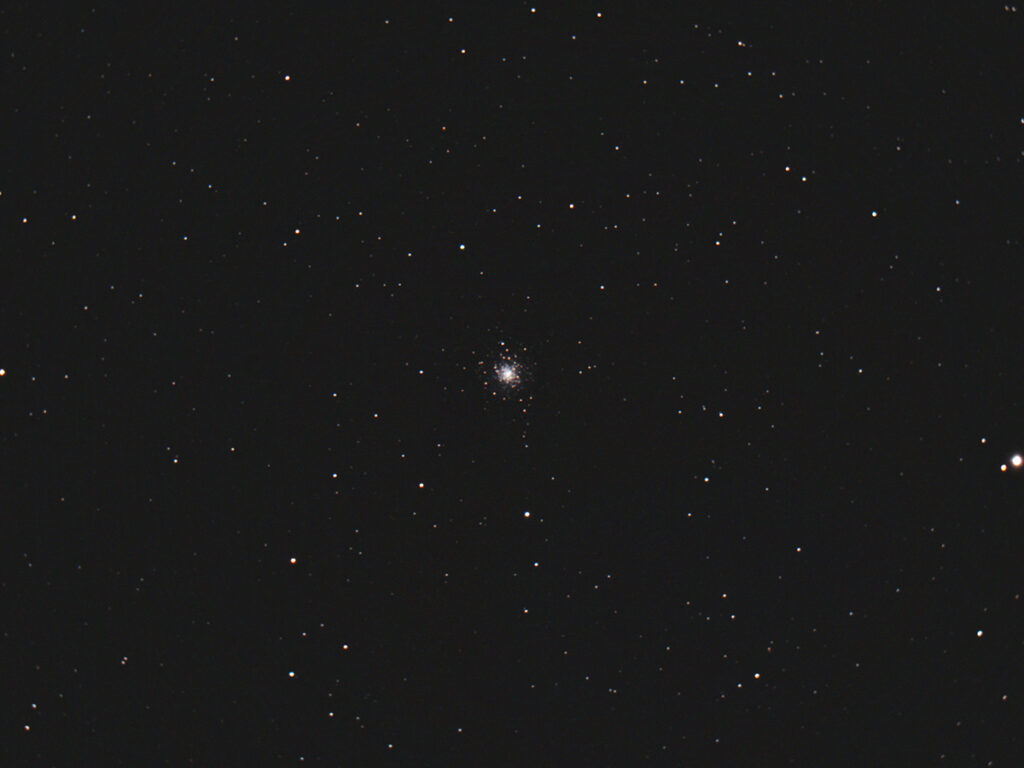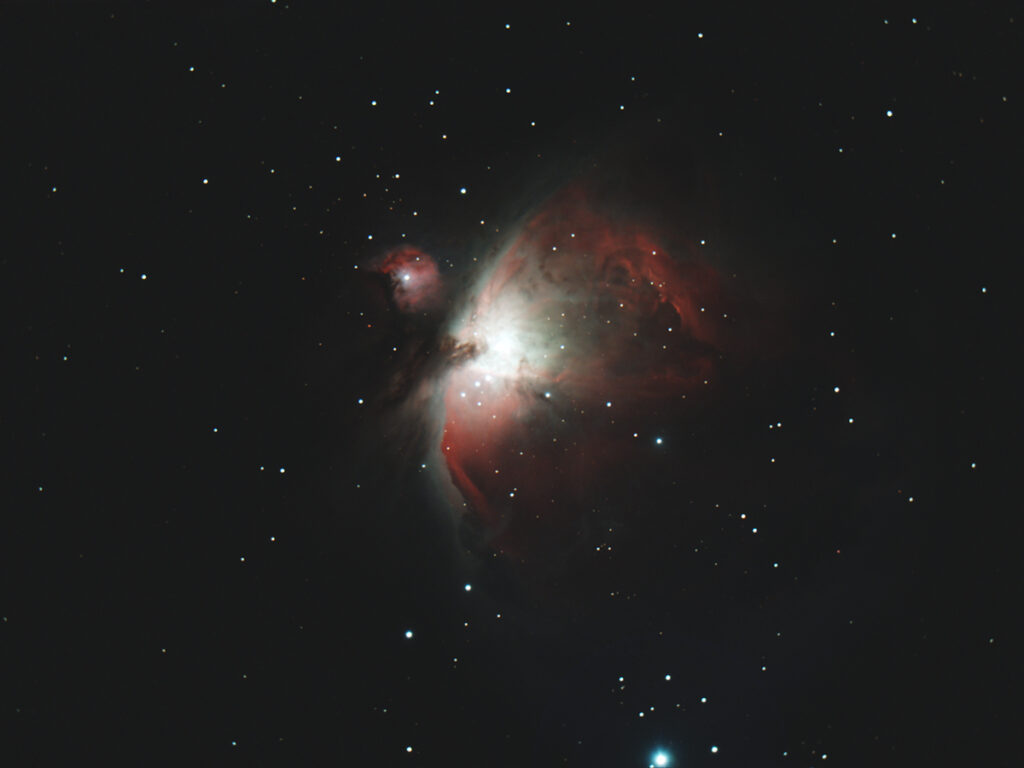
Telescope: 8” Meade Wide Field LX200GPS @ f/4, Altaz mode
Camera: ZWO ASI 294MC (uncooled)
Filter: Orion Imaging Skyglow Filter
Guide scope: None
Exposure: 30x15sec, Gain 120, binned 2×2, saved as TIFF
Darks: None
Flats: Synthetic
Average Light Pollution: Red zone, Bortle 8, poor transparency
Lensed Sky Quality Meter: 18.4
White Balance: Nebulosity Automatic
Software: ASI Air Plus, Deepsky Stacker, Nebulosity, Photoshop
M79 is one of the few globular clusters in the northern hemisphere’s winter sky. Although relatively bright (Mv 7.7), M79 can be a bit of a challenge for backyard observers as it hides low in the south and is often obscured by skyglow. Interestingly, there is some speculation that M79 may not be a native to the Milky Way, but instead it may be associated with the Canis Major dwarf galaxy which is currently passing very close to our galaxy.
M79 is presently in the southeast below Orion as the sky darkens.

Recent Comments